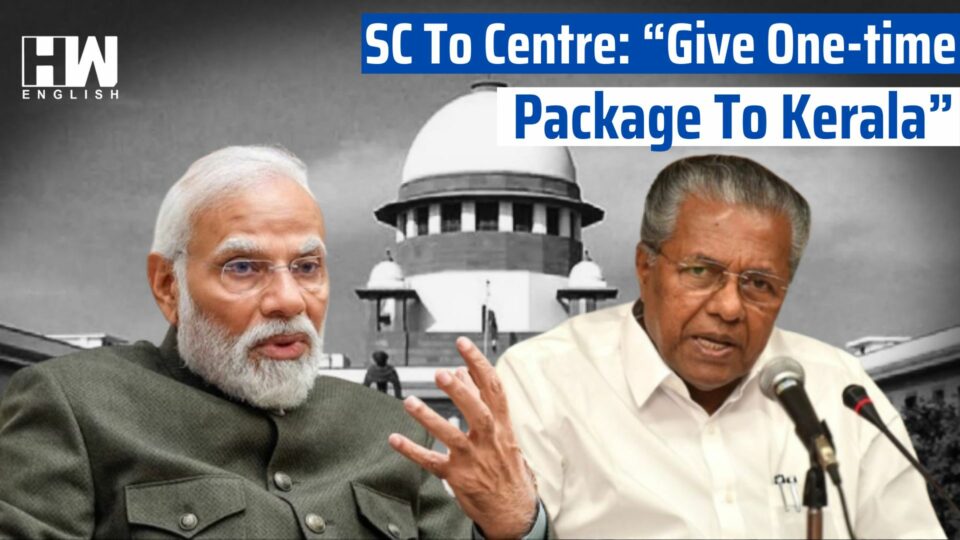On Tuesday, the Supreme Court asked the central government to be “slightly liberal and give a one-time package as a special case” to Kerala. The bench added that more rigid conditions may be put in future budgets, and, in the meantime, a special package should be given to the state before March 31.
Meanwhile, the Union government has pledged to disburse Rs5,000 crore to Kerala by April 1. Additionally, the court has urged the Centre to explore immediate measures within the next ten days to assist the state. Senior advocate Kapil Sibal emphasized Kerala’s urgent need for increased financial support during the court proceedings.
What is the dispute?
The dispute between the Centre and Kerala concerns the Centre’s lowered borrowing limit for the state. The Kerala government filed a lawsuit in December 2022, stating that the Centre’s borrowing limits and “unconstitutional interference” in its finances have made it unable to meet its budgetary commitments.
The lawsuit alleges that the Centre has imposed a net borrowing ceiling on the state, restricting its borrowings from all sources, including the open market. The Kerala government has accused the Centre of interfering in the exercise of its “exclusive, autonomous and plenary powers” to regulate the state’s finances.
What does Kerala say?
The state alleges retaliatory actions, including fund withholding threats, stemming from its legal challenge against borrowing limits. As per the Kerala government, the state is authorized to borrow Rs 11,731 crore within the borrowing limit. The present petition has nothing to do with this loan amount. The demand in the petition is for immediate permission to take a loan of Rs 24,000 crore. However, the request was denied, citing ongoing litigation.
The Additional Solicitor General N Venkataraman, representing the Centre, highlighted the cumulative impact of the offsetting balance on Kerala’s financial situation, noting the state’s deferred fiscal consolidation twice. The offsetting balance refers to the minimum credit balance required by a bank from a borrower for loan approval.
What did the SC say?
During the hearing, the Supreme Court acknowledged its lack of expertise in financial matters but suggested that both governments could collaborate to find a temporary solution. As per Bar and Bench reports, the case is scheduled for further discussion on Wednesday, with a meeting between central and state government officials expected beforehand.
On March 6, the bench emphasized the significance of addressing fiscal mismanagement by states, noting its implications for the national economy, which prompted the Union government’s concern.
Previously, the Centre had declared a financial assistance package of Rs 13,600 crore for Kerala. Out of this, Rs 8,000 crore has already been disbursed. The Attorney General informed the court that the Ministry of Energy has to pay an additional Rs 4,500 crore.
During the hearing of a suit filed by the Kerala government, the Supreme Court urged both the Centre and the state to resolve their disagreements regarding the cap on net borrowing by Kerala.
Through an original suit filed under Article 131, the Kerala government asserted that the Constitution grants fiscal autonomy to states for financial regulation under various articles, with borrowing limits regulated by state legislation.
What does the Centre say?
In a submission to the Supreme Court, the Centre expressed concern, stating that unchecked state borrowing could impact the nation’s credit rating. It highlighted perceived vulnerabilities in Kerala’s fiscal structure, referring to it as having “several cracks.”
The Central Government has accused Kerala of adversely affecting India’s credit rating due to its state debt. It cautioned that any state failing to service its debt could lead to reputational issues and a chain reaction, jeopardizing India’s financial stability.
Furthermore, the Centre highlighted that irresponsible borrowing for non-productive expenditures or poorly directed subsidies by a state could crowd out private borrowing from the market. This, in turn, could elevate borrowing costs for private industries, negatively impacting the production and supply of goods and services.
As per the Centre, Punjab, West Bengal, and Kerala have the weakest fiscal management in India. Kerala, in particular, has experienced a notable increase in government expenditure, with 78% of its revenue income allocated in the fiscal year 2018-19. Additionally, the fiscal deficit in Kerala has risen from 2.4% in 2017-18 to 3.1% in 2021-2022.
ALSO READ: Maharashtra Govt Renames 8 Local Railway Stations In Mumbai
The Attorney General has contested Kerala’s request for additional funds from the Central Government, which argues that the state is utilizing borrowed funds to cover recurring expenses such as salaries and pensions rather than investing in ventures with potential profitability.
Besides this, on February 8, 2024, Kerala Chief Minister Pinarayi Vijayan, accompanied by fellow Left Democratic Front (LDF) party members, led a protest at Jantar Mantar in Delhi against what they termed the central government’s ‘financial injustice’.
The demonstration witnessed the active participation of ministers, legislators, and parliamentarians from Kerala, who voiced their discontent through slogans and banners advocating for the preservation of federalism. Joining in solidarity, Delhi Chief Minister Arvind Kejriwal and Punjab Chief Minister Bhagwant Mann also extended their support to the protest.
Kerala Finance Minister K.N. Balagopal presented the State budget for 2024-25 on February 05, proposing a deficit of ₹273.94 crore after accounting for ₹1,067 crore in additional resource mobilization and ₹1,420 crore in additional expenditure.
As an independent media platform, we do not take advertisements from governments and corporate houses. It is you, our readers, who have supported us on our journey to do honest and unbiased journalism. Please contribute, so that we can continue to do the same in future.

